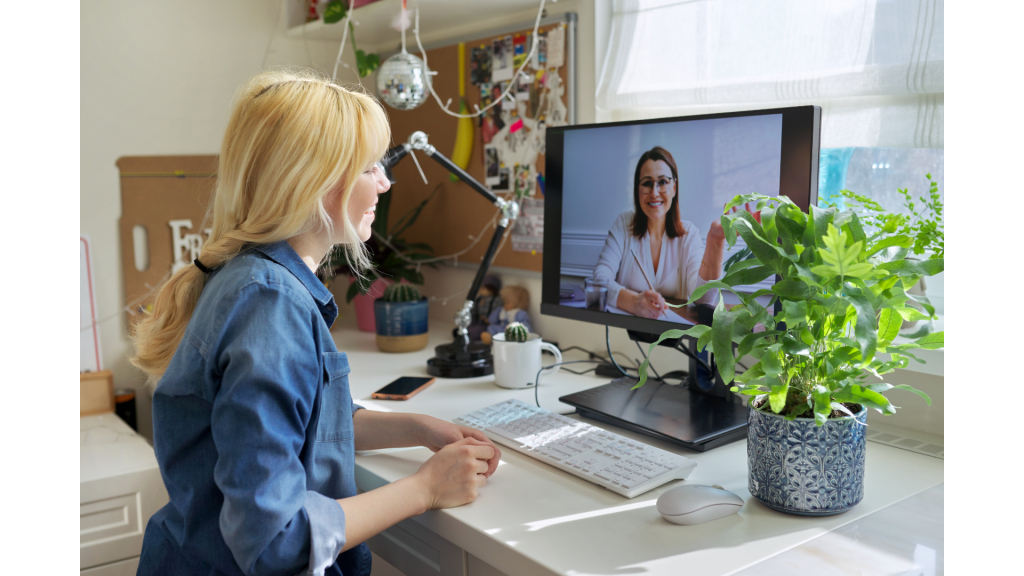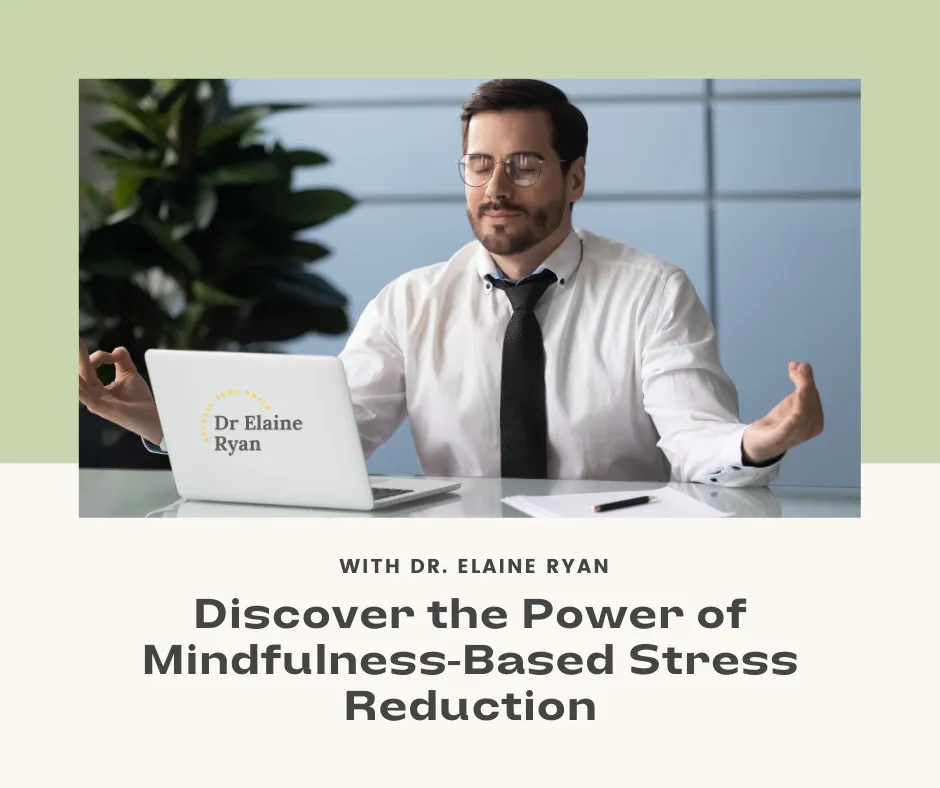Mindfulness-Based Stress Reduction (MBSR) is an evidence-based therapeutic approach designed to help you manage stress and understand anxiety through mindfulness practices. Developed by Dr. Jon Kabat-Zinn in the late 1970s, MBSR combines mindfulness meditation and yoga to promote mental well-being. Today I want to talk a bit more about MBSR and how it can help you with anxiety.
Retrain Your Brain®

Dr Ryan’s online self-help course for anxiety
MBSR in its original form is a program lasting several weeks that teaches mindfulness to help cope with, anxiety, pain, and illness. Mindfulness involves paying attention to the present moment without judgment. This practice enhances self-awareness and emotional regulation, leading to improved mental health.
Numerous studies have shown that MBSR can significantly reduce symptoms of anxiety. Mindfulness practices activate brain regions associated with attention and emotional regulation, such as the prefrontal cortex and the amygdala and this article does a better job than me explaining the research behind this. which leads to reduced stress hormone levels and improved emotional resilience. I have used mindfulness in my personal life for over 20 years having first come across it during my professional training and it has kept my calm through some difficult aspects of my life. When I first started private practice in Dublin 15 years ago I ran group mindfulness classes but it is a practice that you can start any time or place, with or without a group.
There are so many evidenced based reasons for trying mindfulness such as this study that found that participants who completed an MBSR course had increased gray matter concentration in brain regions involved in learning, memory processes, emotion regulation, and perspective taking. These neural changes are associated with reduced anxiety and improved stress response. And should you need more convincing, this study demonstrated that MBSR participants had lower levels of cortisol, a primary stress hormone, indicating a reduction in the physiological stress response. Lower cortisol levels are associated with reduced anxiety and improved overall health.
Key Components of MBSR
Mindfulness meditation is the core component of MBSR. It involves focusing on the breath, bodily sensations, or a specific object and observing thoughts and feelings without judgment.
Example: During a mindfulness meditation session, you might sit comfortably, close your eyes, and focus on your breathing. You notice the sensation of the air entering and leaving your nostrils. When thoughts arise, you acknowledge them without getting carried away, gently bringing your focus back to your breath.
How it helps: This practice trains your mind to stay present, reducing the tendency to ruminate on past events or worry about the future, which are common triggers for anxiety. Regular practice has been shown to decrease activity in the brain’s default mode network (DMN), which is involved in self-referential thoughts and mind-wandering, both linked to anxiety.
Breathing Exercises
Breathing exercises in MBSR help calm the nervous system. Techniques like diaphragmatic breathing and the 4-7-8 method are commonly used to promote relaxation and reduce anxiety.
Example: The 4-7-8 breathing technique involves inhaling deeply through your nose for 4 seconds, holding the breath for 7 seconds, and exhaling slowly through your mouth for 8 seconds.
How it helps: This method activates the parasympathetic nervous system, which promotes a state of calm and relaxation and counteracts the body’s stress response. Research has shown that controlled breathing can reduce the physiological symptoms of anxiety, such as heart rate and blood pressure, leading to a calmer state of mind.

Body Scan
The body scan is a guided practice that involves paying attention to different parts of the body and noting any sensations without trying to change them. This practice enhances body awareness and relaxation.
Example: During a body scan, you might lie down and mentally scan your body from head to toe. You pay attention to sensations in each area, such as tension or warmth, without trying to alter them.
How it helps: This practice fosters a deeper connection with your body, helping you recognize and release physical tension associated with anxiety. It also shifts your focus away from anxious thoughts to present-moment bodily sensations. Studies have shown that regular body scan practice can lead to reductions in anxiety and improvements in sleep quality.
You can start right now, even as you are reading my words, we can start mindfulness right this second.
Create a Quiet Space: Find a quiet, comfortable space where you won’t be disturbed. This may not be possible right this second, but don’t let that put you off; you can start right now. Regardless of whatever is going on around you, decide to focus on your breath. If you are doing that now, then you have started your mindfulness practice. Focus on breathing in and out for the next five minutes, and when your mind wanders, bring it back. That is all you have to do, and with practice, you are teaching yourself to focus on the here and now (which is usually ok) as opposed to anxious thoughts or feelings in your body. Getting out of your head, you will find that the anxious feelings calm down a little too.
If you can find a quiet space where you will not be disturbed, you can try a body scan. You don’t need to lie down unless you want to, and you can do it without verbal instructions by scanning your body and noting where it feels tight. You could breathe into that area and feel it relaxing.
If you are working or in the company of others, you can still start right away by using mindful movement. This can be a simple stretch, being aware of all sensations, or paying attention to the feeling of you contacting the floor (if you are able to get up and walk around).
Maybe you eating, you can do that mindfully too. Pay full attention to the taste, texture, and smell of your food.
The beauty of MBSR is that you don’t need fancy tools or equipment to begin, as at its core, MBSR is paying attention to what is happening now, with no judgement, and you can do that anytime and anywhere.
MBSR is just one approach, you can read more on anxiety counselling and what it involves here.
